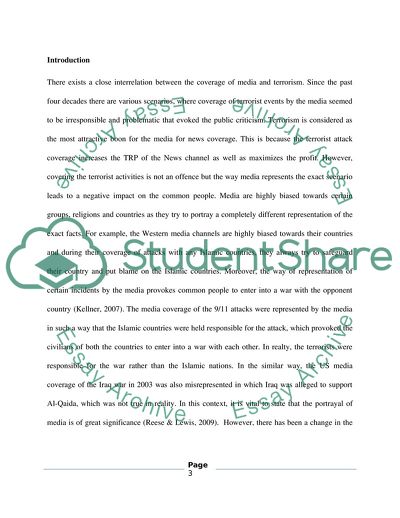Cite this document
(How Has the Media Coverage on Terrorism Changed between the 9-11 Attack and Invasion of Iraq 2003 Research Paper Example | Topics and Well Written Essays - 1750 words, n.d.)
How Has the Media Coverage on Terrorism Changed between the 9-11 Attack and Invasion of Iraq 2003 Research Paper Example | Topics and Well Written Essays - 1750 words. https://studentshare.org/journalism-communication/1861141-the-media-of-terror
How Has the Media Coverage on Terrorism Changed between the 9-11 Attack and Invasion of Iraq 2003 Research Paper Example | Topics and Well Written Essays - 1750 words. https://studentshare.org/journalism-communication/1861141-the-media-of-terror
(How Has the Media Coverage on Terrorism Changed Between the 9-11 Attack and Invasion of Iraq 2003 Research Paper Example | Topics and Well Written Essays - 1750 Words)
How Has the Media Coverage on Terrorism Changed Between the 9-11 Attack and Invasion of Iraq 2003 Research Paper Example | Topics and Well Written Essays - 1750 Words. https://studentshare.org/journalism-communication/1861141-the-media-of-terror.
How Has the Media Coverage on Terrorism Changed Between the 9-11 Attack and Invasion of Iraq 2003 Research Paper Example | Topics and Well Written Essays - 1750 Words. https://studentshare.org/journalism-communication/1861141-the-media-of-terror.
“How Has the Media Coverage on Terrorism Changed Between the 9-11 Attack and Invasion of Iraq 2003 Research Paper Example | Topics and Well Written Essays - 1750 Words”. https://studentshare.org/journalism-communication/1861141-the-media-of-terror.


